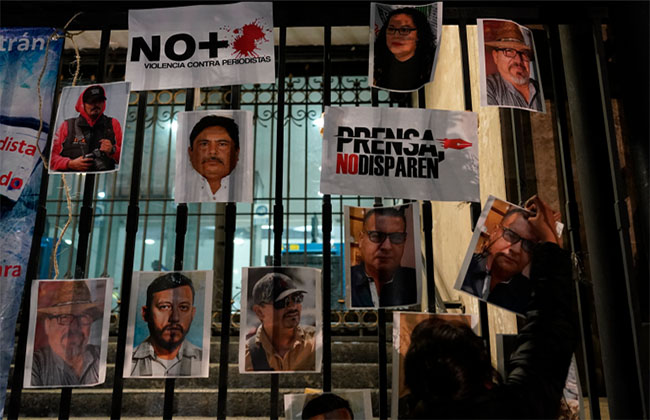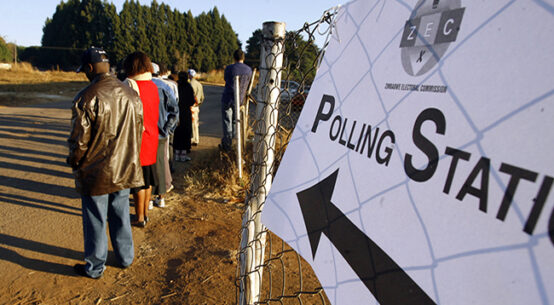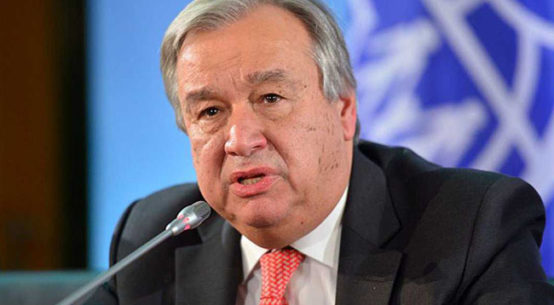
If investigative journalism or press freedom is criminal, then, the cost of practising is becoming risky as evidenced by the killing to date of over 55 practitioners in Mexico, fuelling concern by watchdogs over the unabated brutality.
Since the early 1980s, journalists have either been killed through stab wound, imprisoned, reported missing, killed during cross fire, while covering dangerous assignments, women practitioners raped by uncouth criminals, in acts, many which perpetuators are left scott-free.
Reporters without Borders, Committee for Protection of Journalists, Human Rights Watch and the International Press Institute, all global media watchdogs and defenders of freedom of the press and improvement of the journalism practices in their reports, are concerned at the unabated practice in Mexico. The Defenders demand the Government to stop the vice.
The increasing violence, human rights violations and impunity in Mexico, attacks against media practitioners are on the surge with over 57 killed to date and many are under threat.
Notable media personality, Robert Toledo, a videographer for Monitor Michoacan was shot last January by three armed men reportedly, as he prepared to film an interview west of Mexico City.
Earlier, reporter Lourdes Maldonado Lopez was shot dead in Tijuana – the same city where freelance photographer Margarito Martinez, who documented crime scenes, was fatally shot on January 17.
Jose Luis Gamboa Arenas, director of the news site Inforegio in Veracruz, a notoriously violent and corrupt region, died from stab wounds although two others had close call to demise.
January continued with the highest spike in media attacks recorded. Another reporter was shot at but managed to escape. Another was wounded in a knife attack, according to Jan-Albert Hootsen, the Mexico representative for the CPI, lamenting:
“We’ve seen what’s very likely the most violent month in terms of violence against journalists in a decade,” Hootsen is cited by Al Jazeera.
But media right campaigners have raised a red flag and warn that the violence being escalated shows no sign of abating: “Every year, it’s getting worse and worse,” says Paula Maria Saucedo Ruiz of Article 19, defenders of freedom of expression, are cited by Al Jazeera.
Background:
The violence in Mexico is traced way back to the 1980s after the Mexican Government pledged to stamp out all acts of organised crime and later deployed the military to enforce.
This led to an explosion in violence across the country, including against journalists who dared to report on the conflict.
With organised criminal groups fighting each other and the Mexican state, the country’s justice system has eroded, while corruption has proliferated at the local and state levels, resulting in near-total impunity.
Disappointingly, watchdogs say, over 98 percent cases remain unprosecuted, fuelling a flurry of murders that are instigated by either hate or fame because of inability by security agencies to root out the vice.
About 99 percent of crimes against journalists are not prosecuted, Ruiz said, “Anyone can decide, ‘I’m just going to silence this journalist, because there are not going to be consequences.’”
Manuel Ayala, a freelance journalist who covers missing persons, human trafficking, migration and organised crime in Tijuana, says he is careful who he talks to, as sources can also be informants for criminal organisations. After publishing, he keeps a low profile.
Arguably, media owners have contributed to the heightened and wanton kiing of media practitioners while despite police warning perpetuators of such crimes, they help to identify investigative journalists working on exposing criminal gangs and are later traced and harmed.
“Our bosses do not protect us. We protect ourselves,” Ayala told Al Jazeera in Spanish over WhatsApp, noting that Tijuana journalists are in constant communication about where they are going and whether there’s a risk.
‘Owe them my life’
Mexican journalist Maria Martinez, one of the investigative journalists has had her home protected by locks and security cameras, reports by AFP say
Martinez, who runs the news website Pendulo Informativo, said she, too, has received death threats due to her investigations into corruption and links between officials and drug traffickers.
Martinez asks authorities to contact her every two hours through an electronic tracking device that also serves as a panic button. But she places more trust in her armed guards.
“I owe them my life. Without them I wouldn’t be alive anymore,” she said.
The two retired Special Forces members in civilian clothes watch for any approaching vehicle or person, and when Martinez walks outside, they follow close behind. Her love for the profession forced the practitioner to turn a blind eye. She is ready to fight on based on conviction to serve the public as part of the professional ethics.
“My family has asked me to quit journalism, but I’m a woman with convictions, values… I have a social responsibility,” she said.
Another Regina Martinez, 48, an acclaimed Mexican journalist known for her hard-hitting exposés of human rights violations and corruption and worked as a correspondent with the weekly publication Proceso was beaten by gangsters for her ‘’nose for news’’. She and later died on 28 April 2012.
But, Reporters without Borders (RSF) is unhappy with the “”laxity by authorities in Mexico over the fate of the journalists. It demands authorities to act and prosecute those responsible and reinforce the mechanisms that protect journalists.
The heightening spate of murders of journalists has spilled over into 2022 with two already recorded to have met their fate while on duty in Mexico, rating that country the world’s deadliest country for the media. Mexico is ranked 143rd out of 180 countries in RSF’s 2021, on the World Press Freedom Index.




